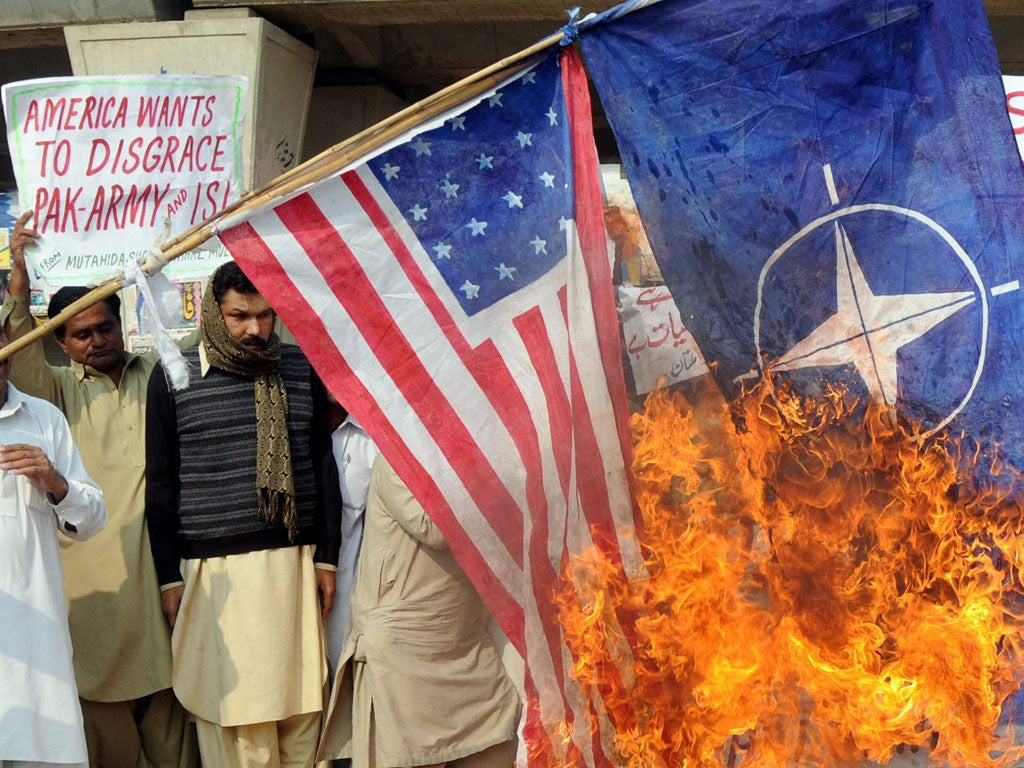Pakistani cable TV blocks BBC over Nato air strike coverage

Pakistani cable operators have pulled BBC World, CNN and other foreign news channels off the air in protest at their coverage of last weekend’s Nato air strike that killed 24 Pakistani troops on the border with Afghanistan.
The decision has caused outrage among many English-speaking Pakistanis who see it as an unreasonable denial of their contact with the wider world.
“This is ridiculous,” said Marvi Memon, a prominent opposition politician. “How can you deprive Pakistani viewers of the chance to get an international perspective on issues affecting their country?”
The protest by cable operators is one of many displays of nationalist anger taking place across Pakistan. They have ranged from quiet candle light vigils led by women in Islamabad to loud, chest-thumping demands for jihad by militant groups in Lahore.
The cable operators, who control access to all independent channels, have even asked Pakistan’s media regulator to withdraw landing rights from BBC World and other foreign news channels for their “anti-Pakistan” coverage.
BBC World has come under harsh focus in particular after it aired a documentary entitled “Secret Pakistan,” that purported to reveal the Pakistan army’s role as a backer of Afghan insurgent groups attacking western forces across the border.
“The documentary was in bad taste,” said Palwasha Khan, a parliamentarian from the ruling Pakistan People’s Party. “International channels as reputable as the BBC should not distort facts. It was an insult to the feelings of 180 million people who have sacrificed so much in the fight against terrorism.”
The clampdown comes on the heels of the closure of Express 24/7, Pakistan’s only English language news channel. Now, Pakistan has no sources of television news in English, yielding a monopoly to its often-sensationalistic Urdu language equivalents.
The BBC is held in high esteem across Pakistan since the country’s founding. During the dark days of Gen Zia-ul-Haq’s dictatorship, it was relied on as the chief source of independent news.
“When Prime Minister Zulfikar Ali Bhutto was deposed, tried and hanged by a military dictator, Mark Tully of the BBC was a household name as the only source of correct, uncensored reporting,” said Aitzaz Ahsan, a prominent politician.
As a political prisoner himself during the 1980s, Mr Ahsan recalls huddling with others around a small transistor radio to get news of “what was happening around us in Pakistan as well as the world.”
Subscribe to Independent Premium to bookmark this article
Want to bookmark your favourite articles and stories to read or reference later? Start your Independent Premium subscription today.

Join our commenting forum
Join thought-provoking conversations, follow other Independent readers and see their replies